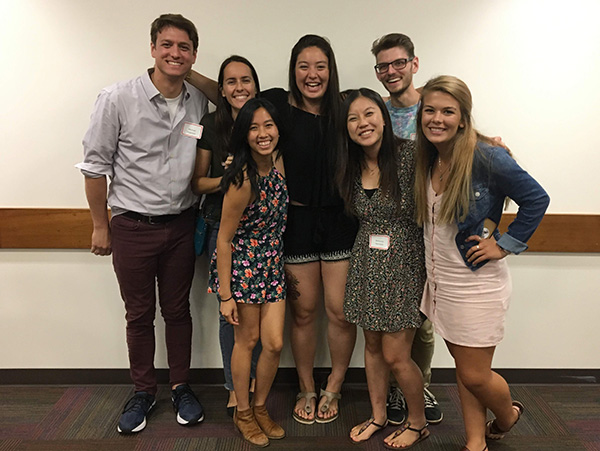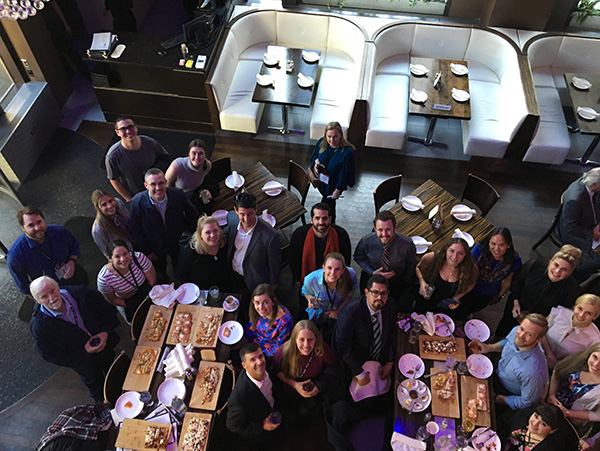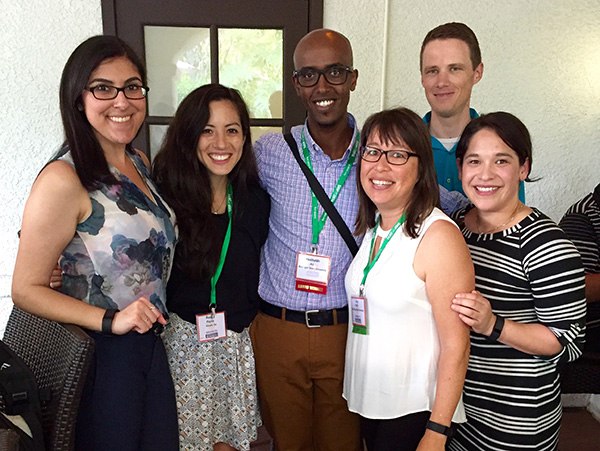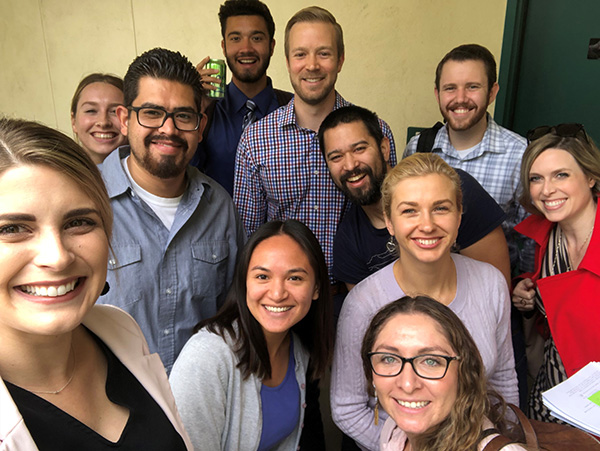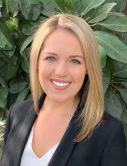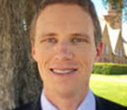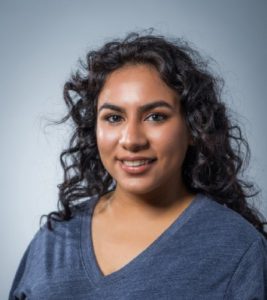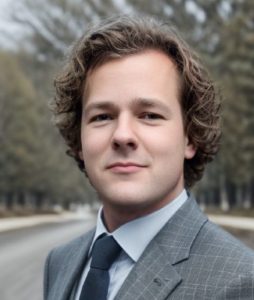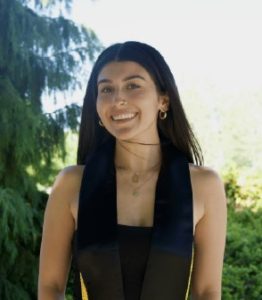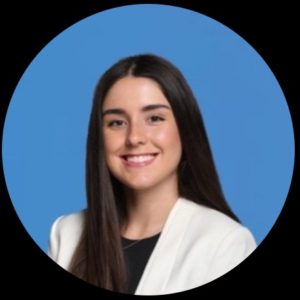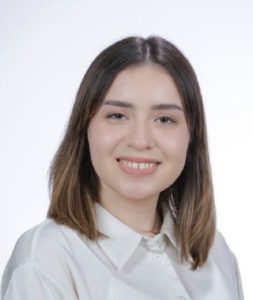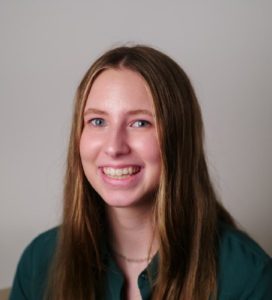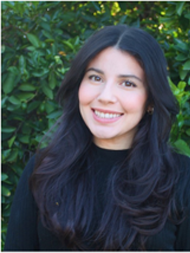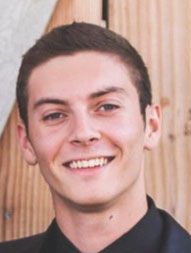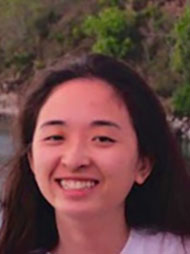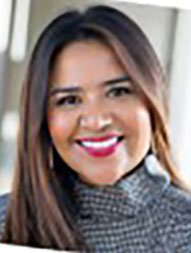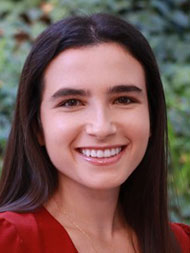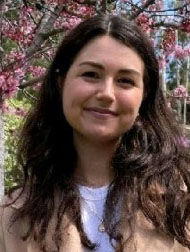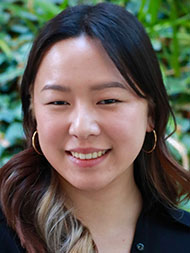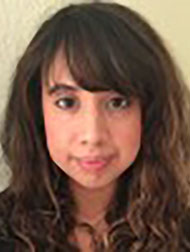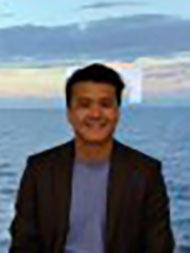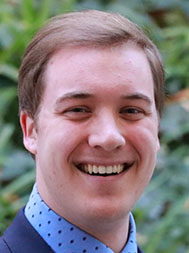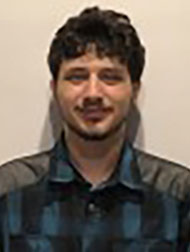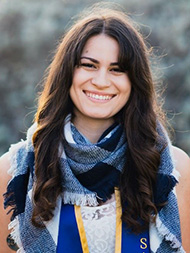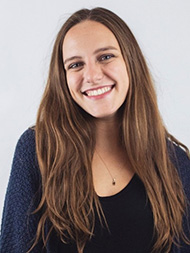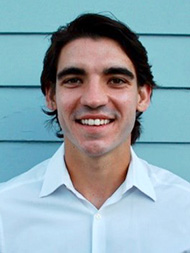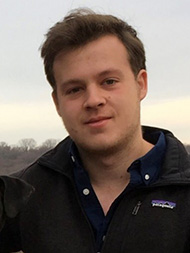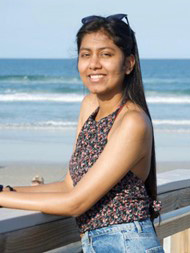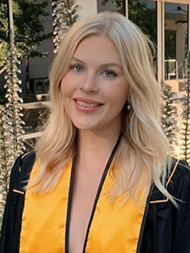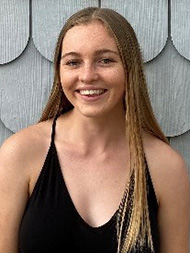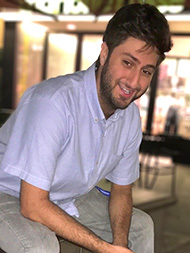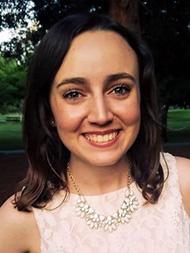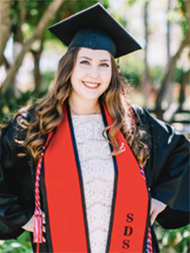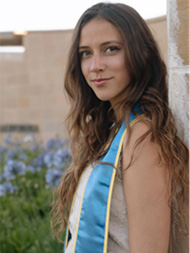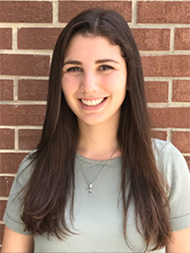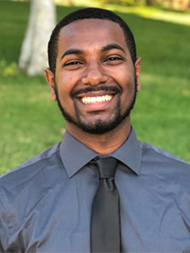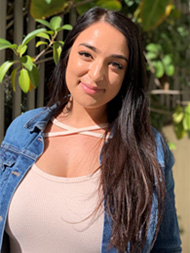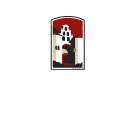Our Program
Our MS in Applied Psychology program is divided into two tracks, both based on the scientist-practitioner model. In this training model, students engage in rigorous quantitative research in psychology and apply scientific knowledge to problems in organizational settings.
Both tracks require 38 units of coursework, a 300-hour internship, and an independent research thesis. These requirements typically take 2 years of full-time work to complete.
Industrial-Organizational Psychology Track
The Industrial-Organizational Psychology track covers core topics in industrial-organizational psychology, such as job analysis, performance appraisal, selection, training, motivation, leadership, stress, job attitudes, and occupational health.
Quantitative Methods Track
The Quantitative Methods track covers core topics in univariate and multivariate statistics in psychological research, including multilevel modeling. Students to choose electives to further tailor their education to match their specific career interests/goals. Electives outside of psychology that fit with this track include linguistics (programming), big data analytics, or statistics.
We accept both recent graduates and individuals who have been in the workforce for a number of years. Some elements of our program that make us stand out:
- We are a full-time program, so students are making a serious commitment to their graduate training
Financial support, in the form of assistantships (e.g., being a TA), is typically available, so that students can give their full attention to their graduate studies
Our internships give students the opportunity to apply classroom learning and acquire new skills in an organizational setting
- Students apply to work with faculty mentors who align with their research interests.
- Upon acceptance into the program, students are matched with a faculty mentor with whom they will work with on their thesis and other research projects
We have four full-time, tenured, research-active faculty who have graduated from prestigious I-O psychology doctoral programs
Faculty Research Labs
Faculty Research Labs
Both tracks in the MS program have a mentorship match model for thesis requirement. Students work directly with a faculty mentor to complete a research project and assist with other research projects in the laboratory. Before applying to the program, learn more about each faculty member’s focus of research and typical projects by reviewing lab websites and past research publications to see if there is a good match. Be sure to mention how your research interests match specific faculty members in your personal statement. Some helpful advice on choosing a mentor in the quant methods track can be found here.
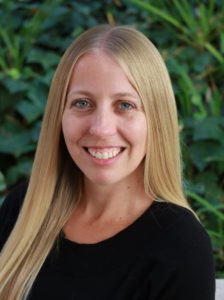
Larissa (Lacie) K. Barber
B.A. University of Missouri, St. Louis; M.S., Ph.D., Saint Louis University.
Research Interests: Connecting well at work means using technology in a way that promotes sustainable work engagement. How can organizations promote effective work connections for productivity and disconnection to maintain well-being? This lab conducts research on evidence-based solutions for tackling problems with “always on” workplace practices that increase worker stress and burnout given the 24/7 nature of e-work communications. Alternatively, “optimally on” workplace practices allow employees to maximize both their effectiveness at work and well-being. Typical lab topics include examining issues surrounding work engagement, work inclusion, work recovery, and work-life balance among teleworkers. This lab also explores effective organizational, leadership, and workgroup practices for creating positive telework experiences.
Lab: ConnectWell @ Work Lab, Currently accepting new MS students

Jeffrey M. Conte
B.A., University of Virginia; M.S., Ph.D., Pennsylvania State University.
Research Interests: Personnel assessment & selection, personality, psychological testing & measurement, stress, type A behavior pattern, temporal issues, time management, safety factors at work
Lab: Personality Measurement Lab, Currently accepting new students
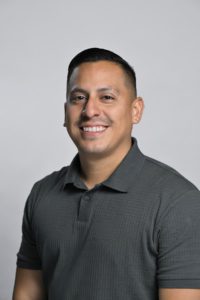
Wiston A. Rodriguez
B.A., San Diego State University; M.S., California State University, Long Beach; Ph.D., The Graduate Center & Baruch College, City University of New York (CUNY)
Research Interests: My research focuses on topics within occupational health psychology such as workplace mistreatment, illegitimate tasks, and the work-nonwork interface. I’m also interested in topics related to diversity, equity, and inclusion, specifically looking at the unique experiences of minorities (e.g., LGBTQ+ employees) and how those experiences impact work and nonwork outcomes.
Lab: Wellness and Representation (WAR) Lab, Currently accepting new students
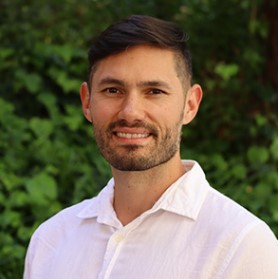
Jon Helm
B.S., M.S., Ph.D., University of California, Davis.
Research Interests: Develops and refines statistical models that (1) measure psychological constructs, and (2) analyze longitudinal data. Uses both frequentist and Bayesian approaches to estimate novel multilevel and structural equation models designed to either separate psychological constructs from a variety of method effects, or summarize how psychological constructs unfold over time.
Lab: STATs Lab (Statistical Techniques Applied to Social Science lab), Currently accepting new students
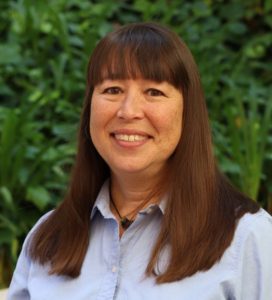
Lisa M. Kath
B.S. University of California, Berkeley; M.A., Ph.D., University of Connecticut
Research Interests: My research interests always center on worker well-being, most often in the areas of safety and stress. Most often, I have been studying the well-being of healthcare workers, with a recent focus on their experiences of patient aggression.
Lab: POWER Lab, Currently accepting new students
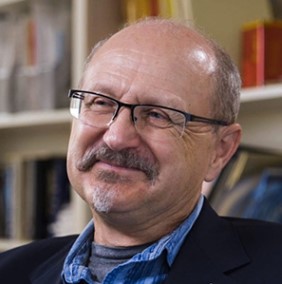
Georg (Jörg) Matt
Dipl. Psych., Albert-Ludwigs-Universitat, Freiburg, Germany; Ph.D., Northwestern University
Research Interests: Tobacco smoke pollution and exposure, secondhand smoke, thirdhand smoke, tobacco control policies; quantitative research methods, quasi-experimentation, field research, evaluation research, meta-analysis, generalizability; measurement, fuzzy set theory, cognitive models of self-reports, fuzzy set models of magnitude estimates.
Lab: Measurement and Evaluation Research Group (MERG), Currently accepting new students
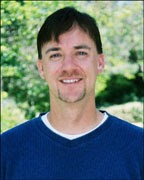
Scott C. Roesch
B.S., University of California, Davis; M.A., California State University, Long Beach; Ph.D., University of Nebraska, Lincoln.
Research Interests: Trait-state models of stress and coping; coping with physical illness, and particularly cancer; cultural, ethnic, and acculturation differences in stress and coping; cross-ethnic measurement equivalence; structural equation modeling, meta-analysis.
Lab: Stress and Coping, Not currently accepting new students
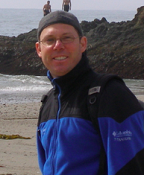
David Marx
B.A., U.C. Berkeley; M.A., Ph.D., Harvard University
Research Interests: Research focuses on several aspects of social cognition including stereotypes, social comparison, and attention. One primary line of research centers on defining and refining stereotype threat.
Lab: Stereotyping, Education, and Person Perception (STEPP) Lab, Not currently accepting new students
Alumni
Our alumni get jobs at a variety of public and private sector organizations. Here are some companies that have employed our alumni:
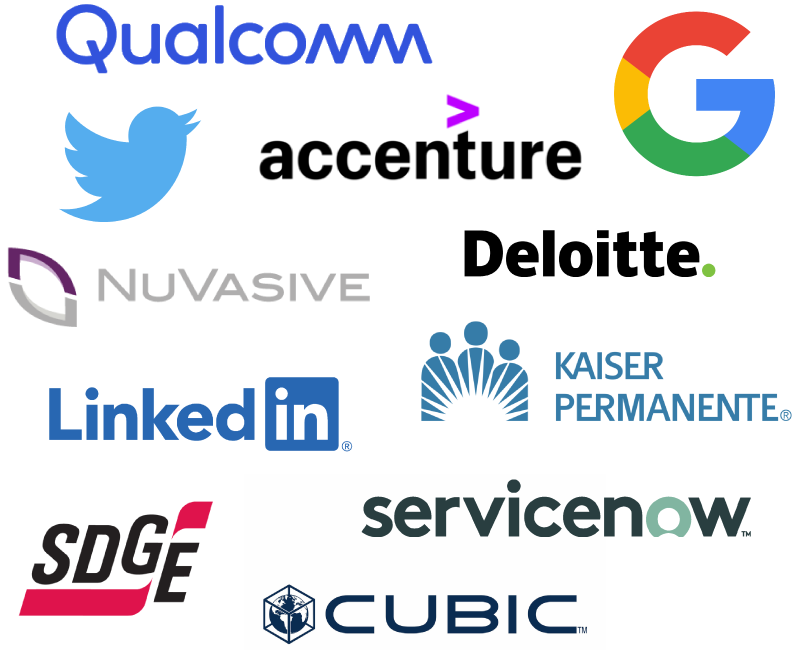
- Visa
- Grossmont Cuyamaca Community College District
- Amazon
- Spotify
- Activision/Blizzard
- APTMetrics
- Center for Creative Leadership
- San Diego City College
- Sutter Health
- Dell
- Aptima
- Petco
- FEMA
- General Atomics
- Electronic Arts
- SHL
- Intuit
- Booz Allen Hamilton
- Cedars-Sinai
Featured Alumni
Entered program in 2023
Entered program in 2022
Entered program in 2021
Entered program in 2020
Entered program in 2019
Entered program in 2018
Teodora Vassileva
Mike Ferguson
Catherine Huyen
Rebecca Harmata
Elizabeth Stewart
Christian Woodward
Julie Ton-Vuong
Entered program in 2017
Amy Tran
Brandon Himes
Jahnina Moss
Lukas Toroslu
LinkedIn Profile
Maria Tolstykh
Marissa Morrison
Entered program in 2016
Aaron McKnight
Brittney Carroll
Dylan Petze
Elizabeth Davies
Saige Riley
Salvador Rubalcaba
Entered program in 2015
Caitie Jacobson
Christine Dilla
Dustin Abbott
Joyce Hwang
Kristy Kay
Noelle Devlin
Simona Spiridon
Entered program in 2014
Alexa Young
Casey O’Loughlin
Emily Lydston
Julia Brown
Justine Zimiles
Mark Reynolds
Nick Eslinger
LinkedIn Profile
Sandra Martinez
Entered program in 2013
Josh Carlsen
Zachary Duncan
Michael Petty
Sean Tang
Lisa Wright
Entered program in 2012
Bryan Aasen
Sam Courtney
Jonathan Hussey
Mike Kirkpatrick
Elisa Torres
Tim Wolcott
Entered program in 2011
Ashlee Asgharzadeh
Lauren Dlugosz
Seamus Joyce
Renee Pires
Bahareh (Berry) Soltani
Mary Yama
Entered program in 2010
Dominique Mansell
Ian Smith
Melissa Oates
Olivia Bustamante
Fiona Cochrun-Nguyen
Kate LaMons
Jacob Mraz
Dara McIntyre
Entered program in 2009
Chris Atkinson
Lacey Wilson
Morgan Da Costa
Megan Chappell
Leah Bressler
Susan Drobka
Richard Drake
LinkedIn Profile
Entered program in 2008
Heather Yamashita
Lindsay Palmer
Viet Pham
LinkedIn Profile
Sean Foley
Zack Girgis
Entered program in 2007
Ryan Mills
Linsey Dirkes
LinkedIn Profile
Jessika Reliford
Brandon Roberts
Tressa Schultze
Marisa Sklar
Stephen Vong
LinkedIn Profile
Entered program in 2006
William Huynh
Meredith Czerwinski
Jordan Willoughby
Alice Wastag
Corinne Boulanger
Taylor Peyton
Addie Brewer

